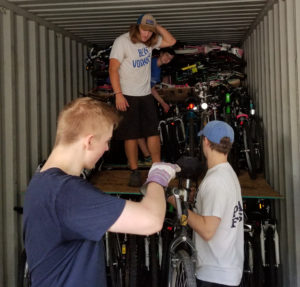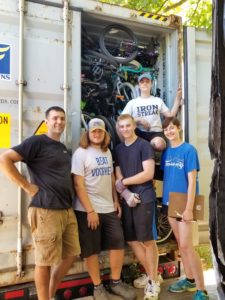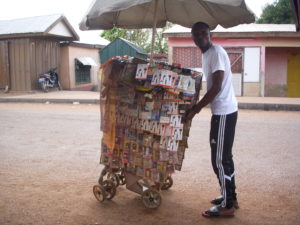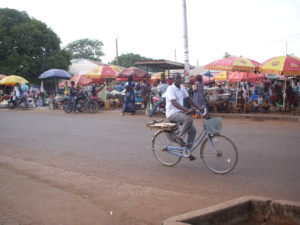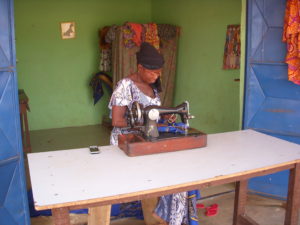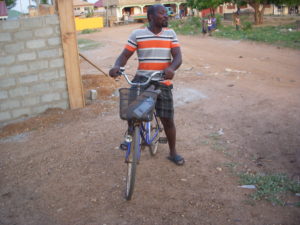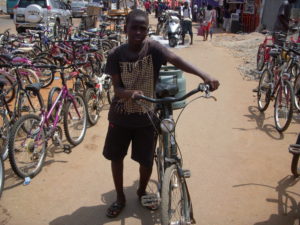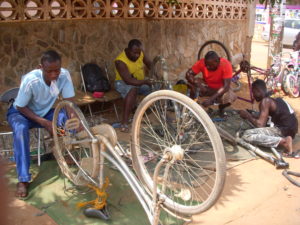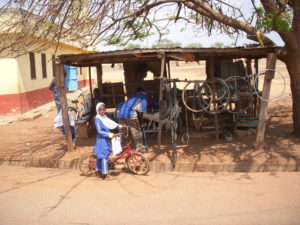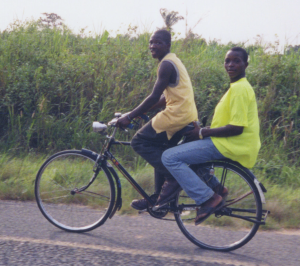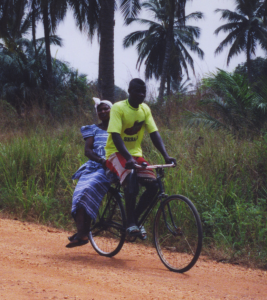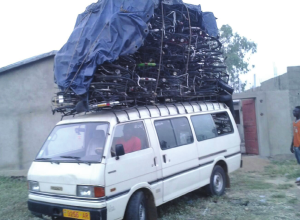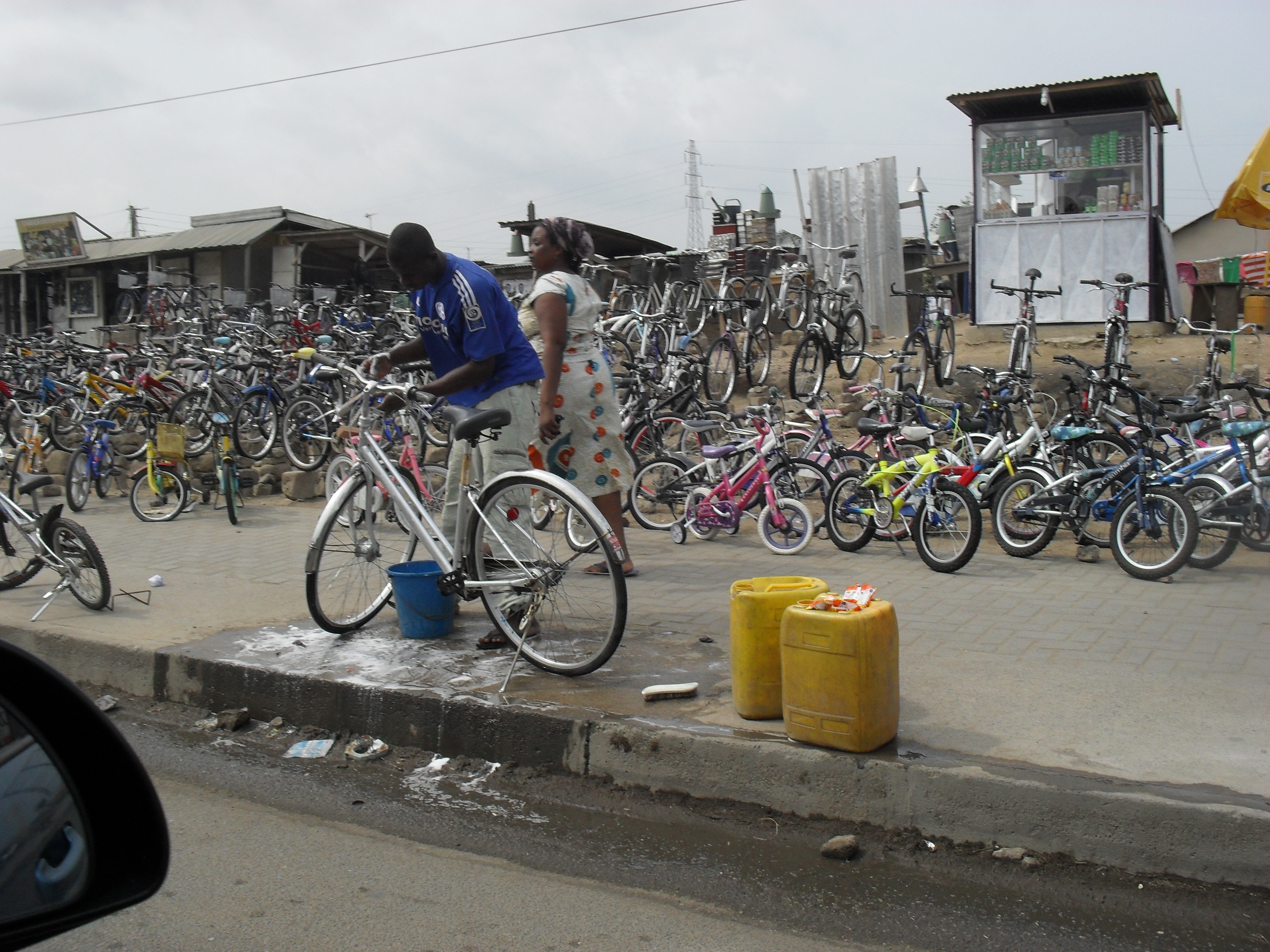By Ohemaa Sarfoa
Fall 2017 InGear
One of the most important commodities in the lives of all living things is water: the body is made up of 70% water, and plants as well as animals need water for growth. Water is an undeniably substantive commodity in the livelihood of humans.
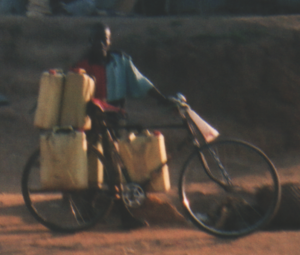
In spite of the importance of water, access to potable water is a great hurdle in some parts of West Africa, specifically Ghana. In some parts of the northern region of Ghana, human beings share the same water with animals. Animals also need water, but in these areas cattle drink and release their droppings in the same lakes and streams humans use.
Sabulugu is a village in the northern region of Ghana where there is little or no access to clean water. Inhabitants have to walk 3.5km to get drinkable water.
This has been the situation in Sabulugu for many years. Thanks to WEBike, though, there has been a change. The need to walk long hours for clean water has now been eliminated. Residents simply tie their water containers to their bicycles and bike to the stream and back in 30 to 40 minutes.
WE EXPRESS OUR PROFOUND GRATITUDE TO WEBIKE!
[Editor’s note: Although we have not been able to get a picture of the water carriers in Ghana, we have seen bicycle water-carriers before. In rural areas, the average Ugandan lives 4 miles from the nearest well. The photograph in this post is of a water carrier from Koytera Uganda. Water carriers put a 10-gallon jerrycan on each side of the back wheel, suspended from a piece of 1” x 3” wood, and then place two more 10-gallon jerrycans on top. That is almost 350 pounds of water! Then they push the bicycle to someone’s house where they dump the water into that person’s cistern for a few shillings and then ride back to the well with the empty plastic containers on the bicycle. They repeat this process dozens of times per day to earn a living and to supply people with the water they need.]

